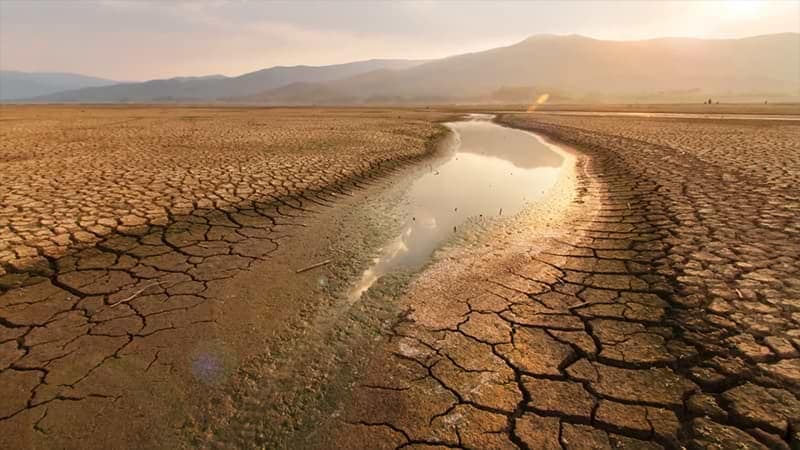“Sustainability is a defining business issue. Companies are looking to work with partner organisations who combine a deep understanding of the social and environmental need for change with a relentless focus on delivering real-world impact. Our global footprint and multidisciplinary model give us the opportunity to help answer the challenge at scale.”

Will Jackson-Moore
Global Sustainability Leader, PwC UK
Many people think about the legacy they will leave behind. Today’s generations are likely to be remembered for how we acted on sustainability and climate change. Business can play a crucial role to help society act fast enough and at sufficient scale. What’s more, action on sustainability can help companies create long-term value by, for example, creating new product lines for a more sustainable economy or transforming to succeed amid heightened expectations for sustainability performance.
Below we share some of the ways that PwC has sought to accelerate action on sustainability this year.
“What's good for business and good for our communities don’t need to be at odds. Addressing critical sustainability issues that impact both business and society fits squarely into our purpose — to build trust in society and solve important problems.”

Tim Ryan
Senior Partner and Chair, PwC US
Decarbonisation
This year, we continued to support emissions reduction at scale and speed on platforms from COP27 to Davos and through our collaboration with organisations like the World Economic Forum and the World Business Council for Sustainable Development. Our latest Net Zero Economy Index offers a roadmap for the pace required. Reaching net zero is a complex challenge, and we have provided advice to clients tackling difficult issues such as scope 3 emissions.
Our State of Climate Tech report this year offers a guide to directing investment where it can have the most impact in reducing emissions, and the results of our Global Investor Survey help to demonstrate investor demand for sustainability. In addition, we have applied our climate and industry expertise to offer a roadmap for creating sustainable cities and setting the stage for a just energy transition.
We have helped many clients move faster toward their net zero goals. The number of clients seeking our sustainability services including decarbonisation has approximately quadrupled during FY23 to over 12,400.
We are on track to reach our own net zero commitments including 100% renewable electricity usage in all our territories by 2030 (we’re already at 91%), and a 50% absolute reduction in scope 1 & 2 emissions from 2019 levels by 2030. In addition, 244,766 active PwC partners and staff have taken part in sustainability upskilling courses during the past three years, equal to 67% of the PwC network's entire workforce.
Adaptation
Emissions reduction alone isn’t enough. We must also adapt to the climate change that is already happening and will continue to accelerate. This year, we have continued to act on adaptation by, for example:
Publicly sharing the risks to our own offices from climate change-driven heat, drought, and precipitation — and the steps we are taking to adapt
Helping businesses understand their climate risks and build resilience
Collaborating with the World Economic Forum to define a path for business to accelerate adaptation at scale
Setting out an approach to adaptation for southern India, one of the places hardest hit by climate change
Nature
Our research this year shows that 55% of the world’s GDP, equivalent to US$58 trillion, is exposed to material nature risks without immediate action. That's why we’re proud to launch the Centre for Nature Positive Business — and double our number of nature specialists — to support a transition to a nature positive and net zero future. In addition, we have described the need for systemic change to move us faster towards a nature positive world.
Nature Hub video
The natural world provides the air we breathe, the water we drink and the essential resources and services that enable our societies and economies to thrive. So when nature is under threat, it has an impact on all of us. And right now, our natural world is declining at an unprecedented rate.
Businesses face new risks from nature loss, and will need to address the emerging regulatory, consumer and investor response. By putting nature positive strategies in place and integrating them into their plans, business leaders can harness new opportunities that create sustainable outcomes for all.
PwC’s passionate community of solvers is working together with businesses and governments to transition to a nature positive future.
“We cannot solve the climate crisis without action on nature. The two are inextricably linked. A climate transition plan that integrates nature paves the way for a more efficient, effective and affordable transition.”

Emma Cox
Global Climate Leader, PwC UK
Supporting business leaders and policy makers
We continue to support the development of policy and regulation in enabling the transition to sustainability. With our collaborators like the World Economic Forum, we are proud to support the development of robust policies in areas from energy transition to carbon markets.
We continue to support the development of robust sustainability disclosures, for example through our support for the Taskforce on Nature-related Financial Disclosures (TNFD) and our creation of a global network of PwC champions on the Corporate Sustainability Reporting Directive (CSRD). What’s more, we encourage business leaders to understand that disclosures like CSRD are an opportunity to build business value.
We help business leaders navigate competing demands and difficult trade offs to achieve their sustainability goals. We assist leaders to create greater momentum behind sustainability by connecting it to value creation, and we provide clear steps for CEOs to better meet investor expectations through action on climate risk.
Working with alliance partners
This year, we have worked with many partners on sustainability such as Oracle, Workday, Amazon Web Services, Workiva, Microsoft, Google, and Sphera. For example, we launched an initiative with SAP to help clients achieve their sustainability goals. Our partnership unites SAP’s tech capabilities and platforms with PwC’s deep sustainability and accounting expertise to enable businesses to apply transparent and trustworthy sustainability metrics throughout their operations.
Case Studies
Below you will find six examples of the ways our PwC community of solvers is making a difference on sustainability and climate.
Case Study
Identifying climate-related risks and opportunities for New Zealand’s tourism sector
New Zealand, also known by its Māori name Aotearoa, is recognised around the world for its pristine landscapes and outstanding geographical features. However, growing concerns around climate change and environmental degradation are threatening the tourism industry and challenging the country’s iconic brand, 100% Pure. Rising temperatures are shortening snow seasons while floods and droughts along with coastal erosion, biodiversity loss and melting glaciers are compromising the country’s status as a clean, green destination.
In collaboration with The Aotearoa Circle, PwC New Zealand championed a multi-stakeholder project that showed the industry how different climate change scenarios might shape the course of its future. To do so, it drew on specialists from the fields of climate and land science, conservation, government, and sustainable finance to both illuminate problems and identify possible paths. PwC New Zealand also analysed the consequences, likelihood and severity of the climate risk and conceived a roadmap for adapting to them.
Over a nine-month period, PwC New Zealand co-designed an adaptation strategy and roadmap for New Zealand tourism with respect to Indigenous considerations, including involvement from a leading elder and PwC New Zealand’s National Cultural Lead.
Vicki Watson
Chief Executive, The Aotearoa Circle
“By bringing together a technical working group and cross-industry advisory board, PwC built new knowledge and understanding, and sowed the seeds for future collaboration. It also drew on deep expertise in climate change to build capabilities and skills.”
Case Study
Creating an ESG data roadmap for VinFast
In 2022, VinFast, Vietnam’s first global manufacturer of automotive vehicles, announced that it was stopping the production of internal combustion engines and switching all of its production to electric cars by the end of that year to fulfil its ambition of becoming a 100% zero emissions car maker.
However, in adopting a sustainable green strategy, it faced a significant challenge in gathering the relevant data to compile an ESG report from across the organisation, which includes factories, showrooms, and offices. That was partly because the company was new to the adoption of ESG practices and therefore lacked robust data awareness, data governance structures and monitoring systems.
Over the course of six months, PwC Vietnam worked with VinFast to compare its current ESG practices against peers, develop a roadmap that reflects best practice, and integrate sustainability measures into the company’s overall business activities. This included creating a bespoke platform for sharing data and a data request form tailored to suit VinFast’s project team. This enabled VinFast to pull ESG data from thousands of sources into one platform before collating it systematically for use in analysis and reporting. As a result, VinFast is now preparing to deliver its first sustainability disclosure (ESG) report.

Dr. Morgan Carroll
ESG Director, VinGroup and VinFast
“PwC’s people and technology helped VinFast reduce a substantial amount of time and effort, empowering us to complete our first ESG report to the highest quality and in a timely manner.”
Case Study
Quantifying supply chain emissions
Many companies aspire to reduce the total carbon emissions of their operations, including the emissions generated in their supply chain. However, it’s often difficult for companies to reliably track and manage emissions generated across their full supply chain which can include thousands of entities spread across a wide geographical area.
PwC South Africa — in collaboration with our firms across the continent — came up with a lightning fast solution which uses an automated, repeatable workflow to give a fast initial analysis of emissions related to purchased goods and services. It cuts the resources and time needed by an impressive 98%, compared to the current manual methods. In scrutinising the supply chain emissions of 17 of PwC's own offices across Africa, the team processed over 140,000 transactions and analysed 15,000 suppliers to provide transparent and accurate results to all key stakeholders — in a total of 55 seconds.
Vishal Devan
Africa Procurement & Supply Chain Sustainability Lead, PwC South Africa
“Supply chain emissions are a major challenge for any business to both measure and resolve. They often contribute over two-thirds of all businesses' emissions and therefore make such a significant difference to achieving sustainability goals. We are proud to have created a game-changing solution.”
Case Study
Creating a climate upskilling programme for a major bank
Giving employees the knowledge they need about climate change and sustainability to do their jobs effectively can be a considerable challenge for a large organisation. So when a major bank in the Dutch financial sector needed to equip more than 15,000 employees with relevant knowledge about Climate and Environmental Risk (CER) in order to meet their sustainability goals, PwC Netherlands stepped up to the plate.
The bank wanted to upskill their employees on their overall strategy and the new CER regulations. Our team created tailored learning journeys for key target groups which consisted of a mix of interactive, off-the-shelf e-learning activities, webinars, podcasts and virtual classroom sessions. As a result, the bank’s employees are better able to apply knowledge of CER in their work, helping the bank make progress on one of its key priorities: sustainability.

Sophie De Vries
ESG and Finance Transformation, Partner, PwC Netherlands
“Upskilling and giving employees practical tools to address sustainability issues is a game-changer for any company and we are really pleased to be able to be supporting this.”
Case Study
Cleaning up the Canadian coastline
PwC Canada is proud to be playing a pivotal role in what has already turned out to be the biggest shoreline clean-up in the history of British Columbia (BC). An impressive 3,000 km of shoreline have so far been cleaned, with more than 1.3 million kilogrammes of debris collected, and 118 derelict vessels removed. More than 50% of the plastic waste collected has been recycled.
The west coast of BC collects an alarming amount of ocean plastic. This, together with abandoned vessels, loose buoys and other forms of marine debris, were not just blighting the views local communities and visitors once took for granted, but were having profoundly harmful effects on sea life and ocean ecosystems.
With tourism drying up during the pandemic, the BC government saw a win-win opportunity that would create jobs for ecotourism operators and local communities impacted by the pandemic, while cleaning BC's cherished coastlines.
PwC Canada was called in to support the Clean Coast, Clean Waters Initiative Fund to oversee BC's ambitious clean-up operation. As the programme administrator, we helped to deploy its US$15 million budget to clean up the shoreline and remove derelict vessels from BC's coastal waters in as effective a way as possible.
In addition to cleaning up the shorelines, the initiative is generating a virtuous circle of positive social outcomes through ongoing job creation, empowering indigenous communities, stimulating the local economies — and ensuring that BC's wild and beautiful coastlines continue to attract tourists from around the world.
Dan O'Brien
Sustainability and Climate Change Partner, PwC Canada
“The people of British Columbia are proud of their beautiful coastlines and are conscious, too, of the importance of healthy ecosystems to support the economy of BC's coastal communities. Because of our proven track record for providing grants administration services, we worked to help direct the government's funding to the organisations who could achieve the best possible environmental and social outcomes.”
Case Study
Assessing climate risks to build resilience
The Mosaic Company (Mosaic), a leading integrated producer of concentrated phosphate and potash — two crucial agricultural nutrients — has long had a low emissions profile relative to many of its fertiliser industry peers. Still, the company wanted to better understand how climate change and the transition to a low-carbon economy could potentially impact its global operations in the future. In particular, it wanted to meet the recommendations of the Task Force on Climate-related Financial Disclosures (TCFD), while maintaining its status as an industry leader.
To aid in these efforts, Mosaic consulted PwC US’s team of climate risk specialists. Building on their existing climate risk assessment and disclosure practices, the team began by undertaking a broad qualitative risk assessment that outlined some of the most significant potential climate-related risks to Mosaic’s operations. Using future climate scenarios from a variety of established models and third-party expert data sources, they evaluated the potential business impact of each risk in the TCFD framework. Together, Mosaic and PwC identified some of the highest-priority climate-related risks across the business, ranked by estimated likelihood of occurrence and severity of impact. After this initial workshop, Mosaic identified four physical risks and one transition risk to study further.
PwC US brought into play its proprietary Geospatial Climate Intelligence Platform to help analyse potential risk levels and associated business impacts of the largest physical risks to Mosaic. It leveraged 2ºC and 4ºC warming scenarios to examine the potential risks to the business under both a low-carbon economy and a high-emissions scenario, creating a risk spectrum for the company’s assets. PwC then integrated Mosaic’s future plans and mitigation efforts to give increased focus to the analysis. The exercise helped Mosaic refine its estimates of the potential impacts that certain physical risks could have on its global operations.
With facilities in the US, Canada and Brazil, Mosaic also wanted to better understand how future carbon policies could impact its operations across a dynamic regulatory landscape. Mosaic asked PwC US to perform a quantitative analysis, using scenarios that could simulate a carbon regulatory landscape which presupposed in one that global inaction leads to severe climate change and, in another, that significant policy and regulation reform needed in order to have a chance at limiting global temperature rise above the most dangerous levels (1.5/2 degrees Celsius) is implemented globally. For both scenarios, PwC incorporated Mosaic’s emissions data and used country-specific projections to illustrate the costs and opportunities for Mosaic across multiple jurisdictions.
Taking the initiative to more deeply understand the risks and opportunities posed by climate change will help Mosaic make more informed decisions involving sustainability efforts. Raising climate awareness is consistent with the company’s commitment to sustainability and helps meet the evolving needs of its employees, customers and investors. Beyond the immediate benefits, this has left Mosaic better positioned for potential environmental, social and governance (ESG) reporting requirements in the future.

Natalie Archibee
Director, Corporate Communications, The Mosaic Company
“We have meaningfully improved engagement on climate change throughout the company, focusing on enumerated risks and aligning on our need to drive action.”
Looking ahead
This year, we put in motion our next efforts to help the world move faster towards sustainability. For example:
Prosperity at risk: In 2024, we will share results of ‘Prosperity at Risk,’ a PwC analysis of how climate change will affect global production sites of resources we all depend on like lithium, iron, rice, and wheat. These findings will help the world foresee future climate impacts on our supply chains and economies while underlining the urgency of adaptation.
Energy transition: We are the project adviser for an initiative for the World Economic Forum's International Business Council, a community of over 120 global CEOs, to identify ways in which companies and governments can act on demand in order to reduce energy and carbon intensity. The goal is to help the world hit its net zero targets while delivering access to low-cost, secure energy supplies, enabling job creation and supporting economic development.
As we move towards 2024 with more than two-thirds of our global workforce upskilled on sustainability and more than 10,000 professionals across the network working as part of our Sustainability platform or practice, we are ready to keep doing our part to assist the world’s transition to a sustainable future.
Contact us

Sarah Brown
Director, Global Corporate Affairs and Communications, PwC United Kingdom
Tel: +44 7384 248 785

















